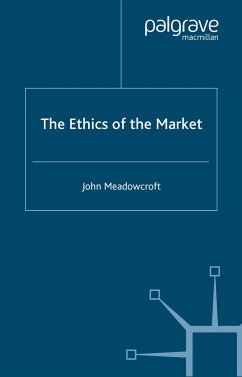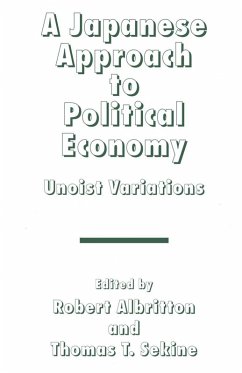This book is essential reading for those interested in the role of the informal economy in contemporary processes of growth and economic governance in Africa.
Why have informal enterprise networks failed to promote economic development in Africa? Although social networks were thought to offer a solution to state incapacity and market failure, the proliferation of socially embedded enterprise networks across Africa has generated disorder and economic decline rather than development. This book challenges the prevailing assumption that the problem of African development lies in bad cultural institutions by showingthat informal economic governance in Nigeria is shaped, not just by culture, but by the disruptive effects of rapid liberalization, state decline and political capture.
Identity Economics traces the rise of two dynamic informal enterprise clusters in Nigeria, and explores their slide into trajectories of Pentecostalism, poverty and violent vigilantism. Drawing on over twenty years of empirical research on African informal economies, the author highlights the institutional legacies, networking strategies and globalizing dynamics that shape the regulatory role of social networks in Africa's largest and most turbulent economy. Through an ethnography of informal economicgovernance, this book shows how ties of ethnicity, class, gender and religion are used to restructure enterprise networks in response to contemporary economic challenges. Moving beyond primordialist interpretations of African culture, attention is drawn to the critical role of the state and the macro-economic policy environment in shaping trajectories of informal economic governance.
KATE MEAGHER is a former Research Associate at Queen Elizabeth House, University of Oxford and is currently a Lecturer in the Development Studies Institute at the London School of Economics.
Nigeria: HEBN
Why have informal enterprise networks failed to promote economic development in Africa? Although social networks were thought to offer a solution to state incapacity and market failure, the proliferation of socially embedded enterprise networks across Africa has generated disorder and economic decline rather than development. This book challenges the prevailing assumption that the problem of African development lies in bad cultural institutions by showingthat informal economic governance in Nigeria is shaped, not just by culture, but by the disruptive effects of rapid liberalization, state decline and political capture.
Identity Economics traces the rise of two dynamic informal enterprise clusters in Nigeria, and explores their slide into trajectories of Pentecostalism, poverty and violent vigilantism. Drawing on over twenty years of empirical research on African informal economies, the author highlights the institutional legacies, networking strategies and globalizing dynamics that shape the regulatory role of social networks in Africa's largest and most turbulent economy. Through an ethnography of informal economicgovernance, this book shows how ties of ethnicity, class, gender and religion are used to restructure enterprise networks in response to contemporary economic challenges. Moving beyond primordialist interpretations of African culture, attention is drawn to the critical role of the state and the macro-economic policy environment in shaping trajectories of informal economic governance.
KATE MEAGHER is a former Research Associate at Queen Elizabeth House, University of Oxford and is currently a Lecturer in the Development Studies Institute at the London School of Economics.
Nigeria: HEBN
Dieser Download kann aus rechtlichen Gründen nur mit Rechnungsadresse in A, D ausgeliefert werden.









